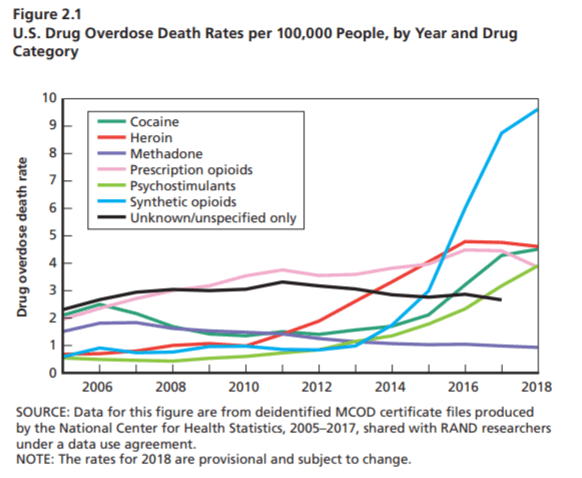Dropping Knowledge
Does having a parent in jail impact children into adulthood? Duke University researchers released a new study last week seeking to answer this question. Using data from a longitudinal study, the researchers found that parental incarceration is associated with a range of poor outcomes, both in childhood and adulthood.
Children with an incarcerated parent are more likely to have a childhood psychiatric diagnosis, attention-deficit/hyperactivity disorder, and conduct disorder. After controlling for childhood adversity and psychiatric diagnoses, those with a parent incarcerated were more likely to have adult anxiety disorder, an illicit drug use disorder, a felony charge, and drop out of high school, among other outcomes.
Their results suggest the impact of parental incarceration stays with children well into adulthood. The researchers also point out that these impacts are disproportionately felt by African American and American Indian populations, who are more likely to have an incarcerated parent.
In the Weeds
Synthetic opioids, such as fentanyl, have been responsible for an increasing number of deaths in recent years. Rand Corporation just published a new report titled, “Synthetic Opioids: An Unprecedented Crisis,” which looks at where these drugs are concentrated, how they move into a market, and what lessons we can learn from other countries’ experiences. Relevant findings include:
- Synthetic opioids are largely concentrated in the Northeast, Midwest, and Appalachia.
- Supply-side factors, not demand-side, are driving the increase in synthetic opioids — in other words, users are not demanding these drugs, but suppliers are switching to them because they cost less, are harder to detect, are easier to create now, and can be shipped worldwide.
- Production has largely moved to China and Mexico, meaning U.S. law enforcement can no longer find and shut down production sites.
- Fentanyl, in particular, can dominate a market extremely fast. The report states, “Fentanyl’s spread is episodically fast and persistent.”
- Fentanyl increases deaths but not users.
- Because synthetic opioids have not reached all parts of the country yet, the crisis is likely to get worse before it gets better.
The report stresses the urgency and uniqueness of the crisis in no uncertain terms, stating, “… fentanyl and other synthetic opioids kill on a scale that is unprecedented among illegal drugs. The causes, dynamics, and likely future course are fundamentally different from other modern drug problems.”

Remembering Hurricane Florence
While we are anxiously watching the path of Hurricane Dorian, this Saturday marks the anniversary of Hurricane Florence forming as a tropical storm before becoming a major hurricane and inflicting lasting damage on North Carolina. EducationNC reporter Rupen Fofaria is on the road for the next few weeks visiting counties affected by Florence and reporting on the ongoing recovery efforts. He shared this:
“When I came out to Eastern NC last year right after Florence, having only experienced light flickering in Raleigh, I was floored and heartbroken at the scene. I had no idea what happened out East. I’m back one year later and I’m floored again.”
Follow along with him on Twitter at @Rupen_Fofaria.
Need to Know
Tuesday is the deadline to apply for five new positions at EducationNC, including: videographer, audience engagement specialist, visuals and interactive editor, Western North Carolina coordinator, and a higher education policy analyst. Find out more about each position, including how to apply, here.


